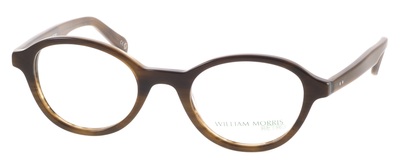|
When a patient walked into the clinic complaining of mild headaches and blurred vision, Dr. Campbell conducted the same complete vision and eye health exam that he would with any other patient. However, the exam revealed an irregularity, which concerned Dr. Campbell enough to refer the patient for a full CT scan the very next day.
That scan confirmed what the doctor had originally suspected: the patient had a benign brain tumour. Treatment was swift and less than two weeks after the original appointment with his optometrist, the patient underwent surgery to have the tumour removed. Three days later, he was released from hospital. The story demonstrates the importance of regular comprehensive eye exams for people of all ages. “The eyes are connected to so many other systems in the human body,” says Dr. Campbell. “A number of serious and potentially fatal health conditions can be detected through a comprehensive eye exam.” A brain tumour is just one example of what an optometrist might detect. An eye exam can also identify unusual structures within the eye and unusual growths, including a rare form of cancer called ocular melanoma. This cancer develops within the cells that make pigmentation in the eye and can be life threatening if it spreads to other parts of the body. Skin cancer might also be detected through an examination, as lesions can show up on the eyelid and possibly spread to the brain through the eye. In fact, the eye and its surrounding tissues are among the most common areas of the body where skin cancer is first diagnosed. Optometrists also detect hypertension, a leading cause of a heart attack, stroke and chronic heart failure, by looking at the blood vessels in the retina at the back of the eye. The same is the case for diabetes, which can cause a condition in the eyes called diabetic retinopathy. Early detection of diabetic retinopathy is essential to avoiding serious damage to the eye and potential blindness. “It is easy for people to say to themselves 'My sight is fine, what's the point of getting my eyes checked?'” Dr. Campbell points out. “But certain conditions might not have side effects right away, and catching these conditions early might be the difference between life and death.” The doctor recommends that people between the ages of 20 and 65 see an optometrist every one to two years – and seniors, children and young adults should do so annually. In 1996, Robert Morris created William Morris London – an independent company with a very ‘English’ brand. The aim? To offer designer glasses to every audience, providing superb original designs which continually evolve. Coupled with the love and pride that goes into creating the frames is the same level of hard work, dedication and personal service that each member of the William Morris London team strive to give their customers on a daily basis. From humble beginnings to what is today a successful global brand, William Morris London employ staff, agents and distributors all over the world. It’s important to know that the philosophy and brand attributes of William Morris London remain as strong as they were all those years ago. In a corporate saturated world it’s the ‘family’ values that set them apart and what their customers appreciate. Visit the William Morris website for more frame options
(Family Features) Most of us are familiar with the healthy habits necessary to promote a high quality of life – whether we put them into practice or not. What some may not realize is that many of these common-sense teachings not only prevent disease, they also keep vital organs, such as your eyes, in tip-top shape. “Your quality of life is closely linked to how well you see,” said Lisa Shin, an optometrist and VSP provider based in Los Alamos, New Mexico. “You can take steps now to take care of your eyes and preserve your vision well into old age.” Protect your eyesight and keep your eyes healthy for years to come with these tips: Eat a healthy diet. Research shows that certain foods can boost eye health and ward off age-related eye changes, such as macular degeneration. To keep your eyes in the best shape, Shin recommends incorporating eye-boosting vitamins and minerals into your diet, such as lutein and zeaxanthin (found in broccoli, corn, squash, peppers, spinach and kale); vitamin C (found in citrus fruits, melons, tomatoes and broccoli); vitamin E (found in legumes, wheat germ, nuts and seeds); zinc (found in whole grains); and omega-3 fatty acids (found in salmon). Reduce time in the sun. Cataracts are the most common cause of age-related vision loss in adults. Because the sun's ultraviolet rays can increase your risk of developing cataracts, it’s important to take precautions to shield your eyes from the sun. Shin recommends wearing UV protective eyewear, as well as a wide-brimmed hat. Quit smoking. It’s a no-brainer that smoking is bad for your heart and lungs, but did you realize that it can also damage your eyesight? “Smoking harms nearly every bodily organ, including the eyes,” Shin said. “Cigarette smokers are at greater risk of developing both macular degeneration and cataracts.” Exercise regularly. Aside from keeping your waistline trim, regular exercise can also keep your eyes sharp. A study in the “British Journal of Ophthalmology” found that those who led an active lifestyle were 70 percent less likely to develop macular degeneration. Participants in the study walked at least two miles a day, but even just 30 minutes of walking a day can go a long way toward keeping your entire body in good shape. Get an annual eye exam. Even if you think you have impeccable vision, it’s still imperative to schedule an annual eye check-up. The eyes provide a surprising number of clues about your overall health. By simply peering into your eyes, your eye doctor can detect a broad array of health conditions – from hypertension to diabetes – that you might not even be aware you have. You only have one set of eyes, so it’s crucial to take the proper steps to care for them. By nourishing your body with the right foods, getting regular exercise and going in for regular eye exams, you can keep your vision sharp at any age. Photo courtesy of Getty Images SOURCE: VSP Vision Care
Eleven million Canadians are living with diabetes or pre-diabetes, according to the Canadian Diabetes Association. While there are numerous complications associated with the disease, what diabetics might not know is that it can also have a serious impact on eye health. “Diabetes gives rise to a number of eye-related issues, including cataracts, glaucoma and potential vision loss,” says Dr. Jaswinder Bains. “Anyone suffering from diabetes needs to take extra caution and make sure that they undergo a comprehensive eye examination with their optometrist at least once a year.” Dr. Bains explains that diabetes can affect all blood vessels in the body, including those in the eye. A condition called diabetic retinopathy occurs when there is a weakening or swelling of the tiny blood vessels in the retina of the eye, resulting in blood leakage, the growth of new blood vessels and other changes. If diabetic retinopathy is left untreated, patients can go blind. Several factors increase the risk of developing diabetic retinopathy, including poorly controlled blood sugar levels, the length of time with diabetes, smoking, high blood pressure, drinking alcohol and pregnancy. Fortunately, there are ways to avoid and treat diabetic retinopathy, says Dr. Bains. Controlling blood sugar levels is the first step towards avoidance, so it is important to follow a physician's instructions around diet, exercise and medication. Early detection is crucial to treating the condition before serious damage to the eye occurs. An optometrist can identify the signs of diabetic retinopathy through a comprehensive eye exam and prescribe appropriate treatment. source: www.newscanada.com
|
Joe BusharaWith over 30 years experience licensed optician Joe Bushara and his highly experienced team, bring you the latest trends in frames and technologies in lenses from around the world. Categories
All
Archives
March 2024
|












 RSS Feed
RSS Feed
